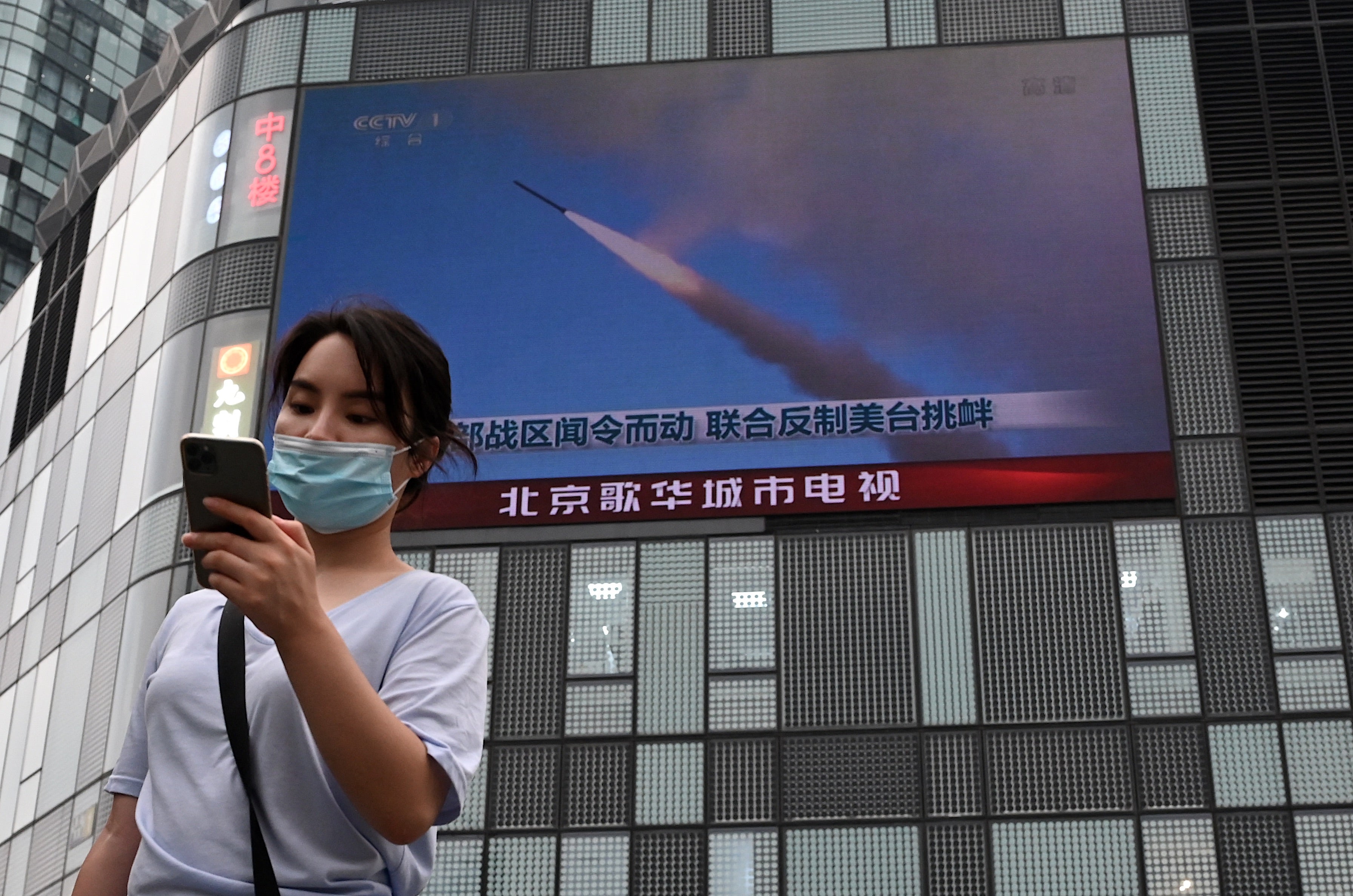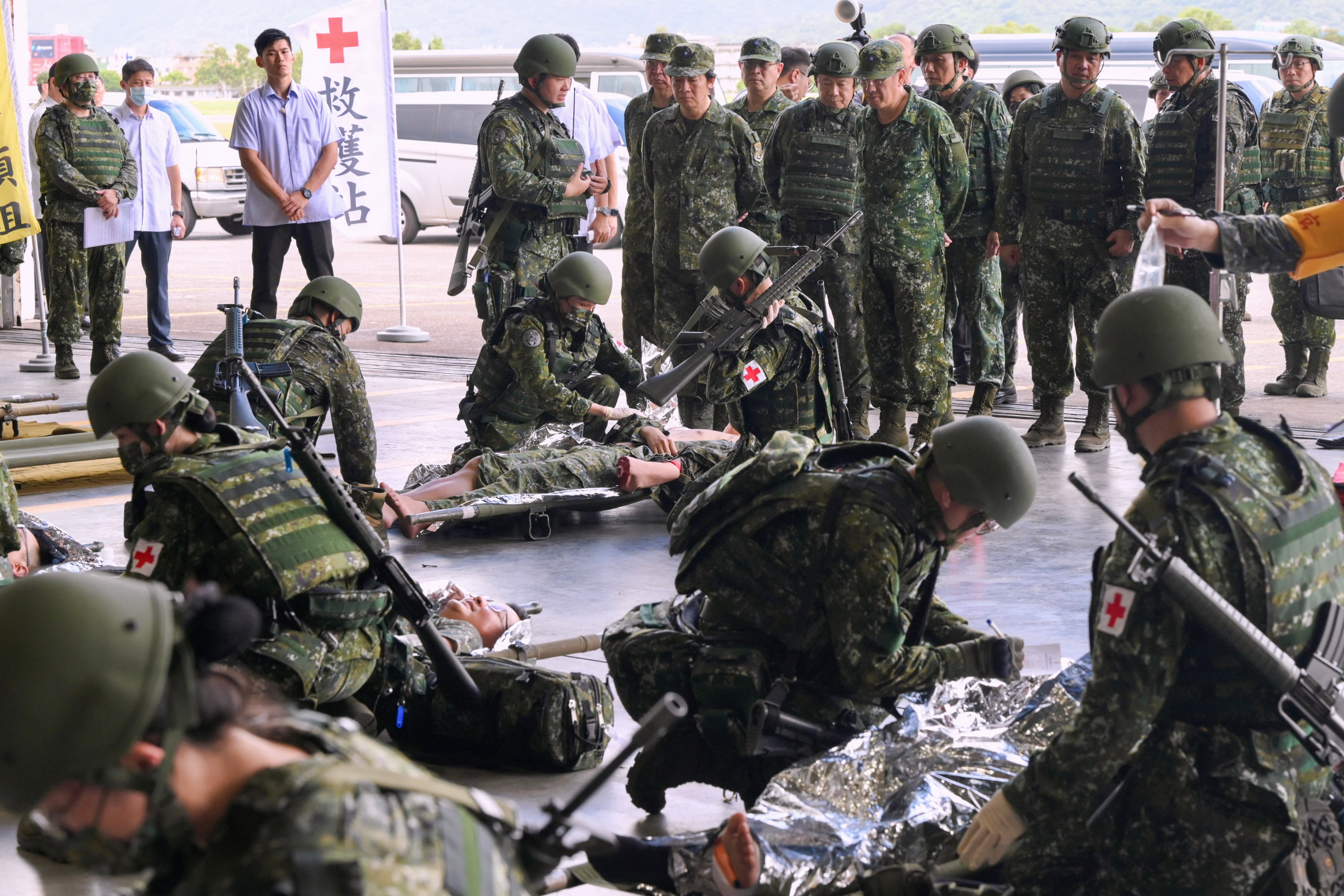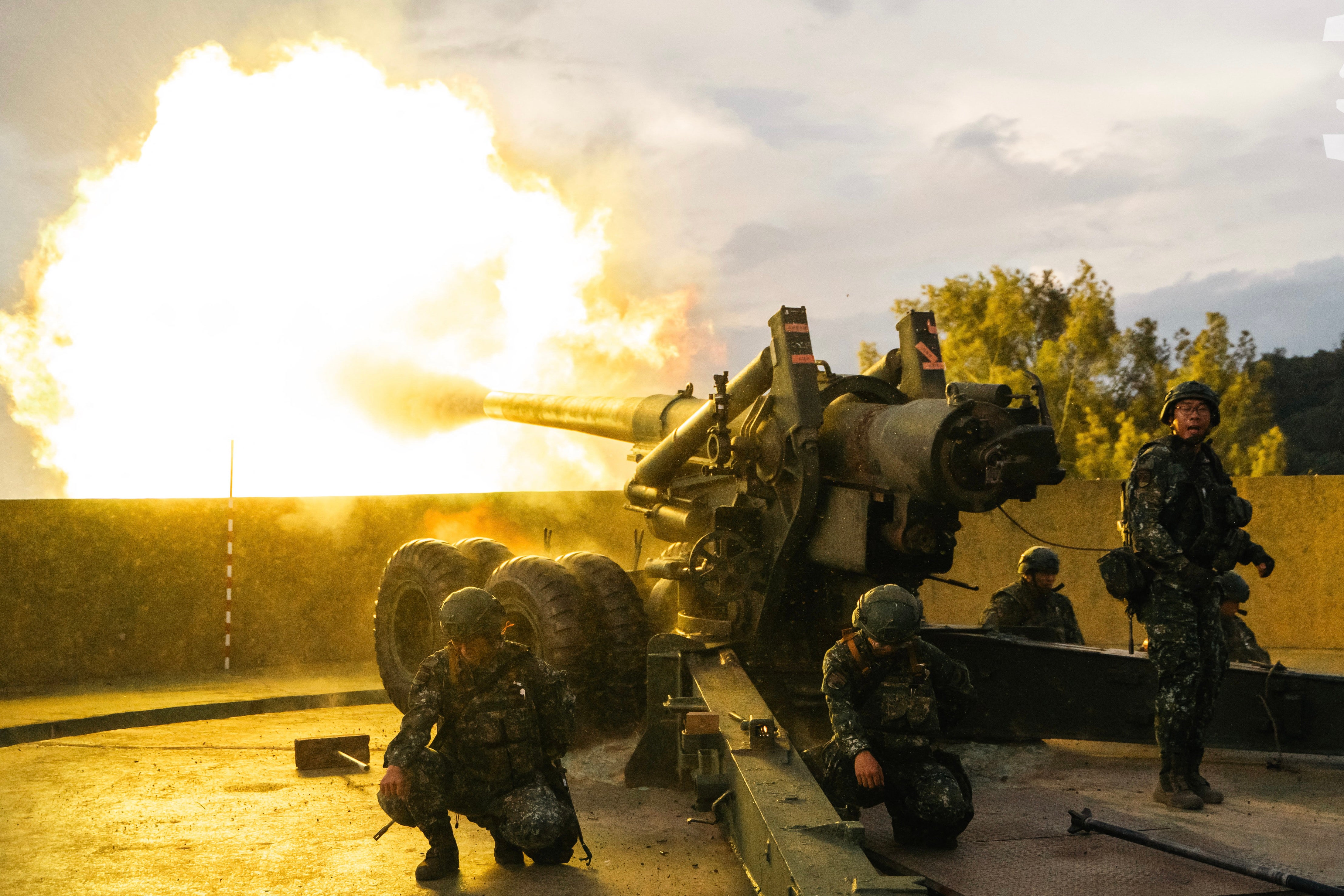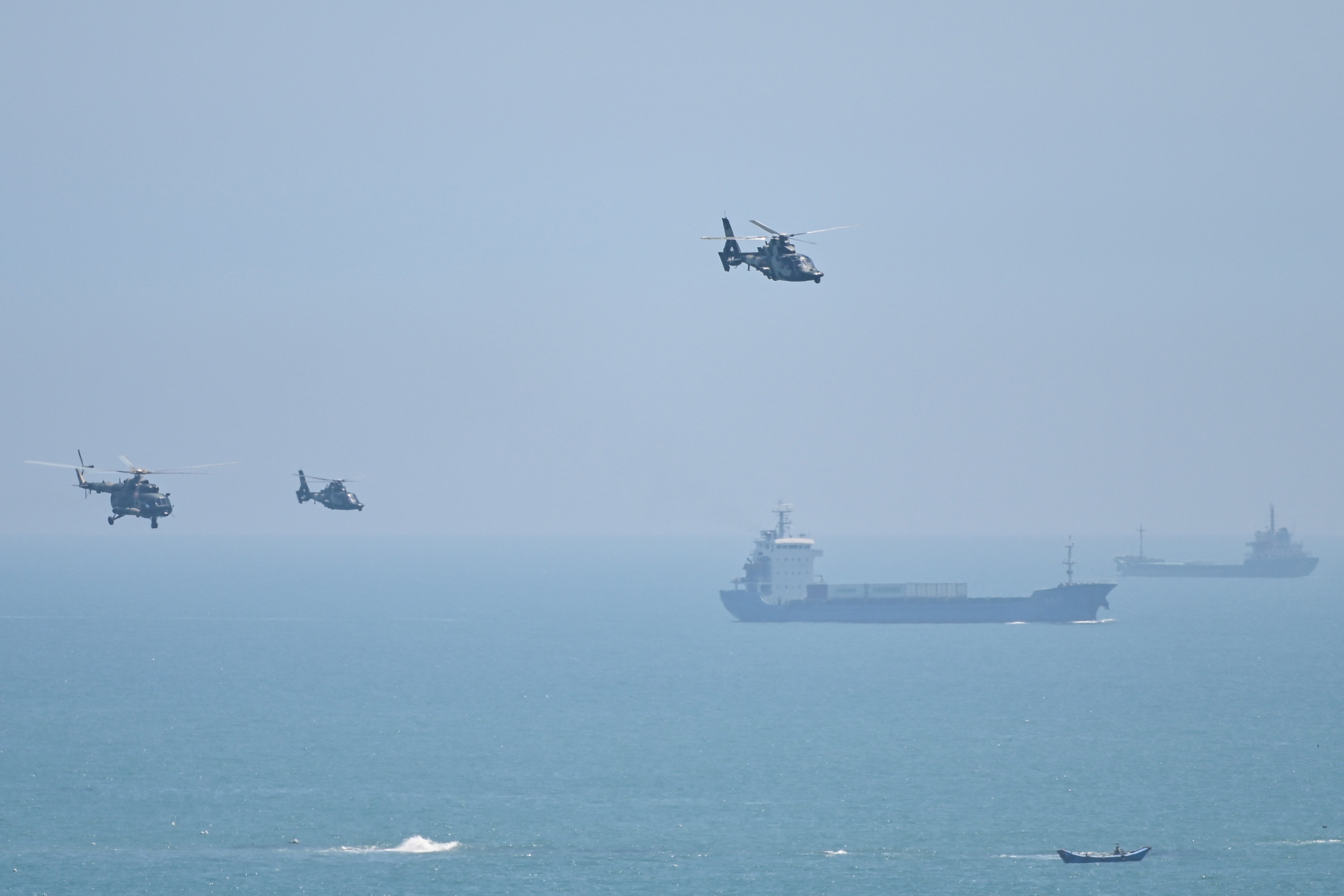Why Taiwan is counting on its silicon shield to save it from a Chinese invasion
China’s military and coast guard have surrounded Taiwan’s main island as part of large-scale drills and according to US intelligence, Beijing has ordered the military to ‘be ready by 2027’ to invade Taiwan. But what is it like to live under such a constant threat? John Kampfner heads over there to find out and is surprised by what he finds

Within a few hours of touching down at Taipei’s Taoyuan international airport, I found myself in the basement of a parking lot. My wife and I had been invited to a show by a well-known photographer, but we struggled to find the venue. Google Maps isn’t that great on pop-up performances written in Chinese characters.
With the help of some bemused but friendly locals, we made it to our destination, a party where a man in a thong was doing gyrations at pilates-style agonisingly slow speed. People of all genders, sexualities and ages were gazing intently at the stage.
The article I intend to write is supposed to be about geo-strategy, but there is a reason why I am starting here with this description. Under constant threat from China, Taiwan is increasing defence spending. One year of conscription for all men has been reinstated.
There is another form of resilience, too. Taiwan is also becoming more defiant in asserting not just what it is, but what it represents – a tolerant alternative to one-party rule. It was the first Asian country to recognise equal marriage, one of the several modern developments of which it is proud.
The first thing I discovered in my nearly two weeks in the country was that I shouldn’t have taken the route that I did. I had flown via Hong Kong and got a connecting flight. Did I not realise, several interlocuters admonished me, that the Chinese would have stolen my data, taken my DNA and caught me on facial recognition? I have no idea if they did, but I admitted that I had been naive.
Two recent events have shaken Taiwan out of any lingering complacency. One was the 2022 Russian invasion of Ukraine, an invasion that even on its eve was deemed by many Ukrainians themselves and by many Western experts to be unlikely. The other was the 2019 clampdown on pro-democracy demonstrators in Hong Kong.
Even as I was in Taipei, the media was full of coverage of the 14 of a group of 47 Hong Kong activists who had been found guilty of “subversion”. In my brief stopover on my way back to London, I was struck by how subdued Hong Kong had become. Superficially, it looked as it always had, but any street life was carefully curated and monitored by security guards, uniformed or plain-clothed – and seemingly never far away.
To think that this territory was for decades seen as the vibrant and liberal place from which to report on China and east Asia. Some journalists have moved from Hong Kong to Singapore – but freedom of expression is heavily circumscribed there too; no, the new place to be is, Taiwan. With dictators cracking down elsewhere, the Taiwanese have spotted a market opportunity to become the region’s cultural and tourism hub.

The atmosphere amongst its 24 million population is an endearing mix of the serious and humorous, relaxed and alert. People talk incessantly of the threat from “over there”, while carrying on regardless.
The threat ebbs and flows, but the general direction is hardly reassuring. As one diplomat put it to me: “The central mission of the Chinese Communist Party is its ‘One China’ policy. That is hardwired and has not changed. The difference is that president Xi Jinping has made it more explicit.” Xi regards Taiwan as a recalcitrant province that will eventually come under Chinese control.
According to US intelligence, he has instructed his military to “be ready by 2027” to cross the 180km strait and invade Taiwan. In the meantime, China asserts itself with increasing menace in east Asia’s airspace, waters and information sphere.
These are so-called “grey zone operations”, activities that fall short of war. They have included live-fire drills that temporarily seal off the island. Taiwan is said to have only two weeks of gas supplies at any time – a shortage not helped by its decision to decommission its few nuclear reactors.

On Monday, the People’s Liberation Army (PLA) said all branches of the military were approaching Taiwan by sea and air. Maps showed nine declared zones for the exercises, including six large areas near Taiwan’s major ports, with the joint drills focussing on sea and air combat-readiness. The PLA did not say when the drills would end, and did not announce any live-fire or no-fly zones.
China’s relentless campaign to isolate Taiwan has paid dividends. At the turn of this century, 35 countries recognised it. That number is down to 12 small states. That is why an attempt to engage with it at a high level enrages Beijing. Relations hit perhaps their lowest point when Nancy Pelosi, then the speaker of the US House of Representatives (and therefore the third most senior figure in the land) visited the island in August 2022.
As soon as she left, China fired ballistic missiles and encircled the island. As one Taiwanese activist told me, only half-jokingly: “We all get a bit nervous when we approach April and August.” The strait between China and Taiwan is at its calmest during these months, he informs me, making an invasion more likely.
One of several potential deterrents for China, say some, is the dominance of Taiwan’s semiconductor industry, namely one huge company situated just south of the capital. Not only does TSMC account for 15 per cent of the country’s GDP, but most of the global output of smartphones, computers, cars, TVs, down to LED lightbulbs, are likely to contain its semiconductors.

Neither the Americans nor the Chinese can seemingly compete. This has given rise to the term “silicon shield”. Would China, goes the argument, be prepared to endanger that by invading? Analysts are divided on this point, noting that a slump in production would damage the US at least as much.
One evening in Taipei, I stumbled across a crowd on the grounds of one of the city’s main tourist sights, the Chiang Kai-shek Memorial Hall. It was 4 June, the anniversary of the Tiananmen Square massacre. The crowd was impassioned but peaceful, mixing speeches with music and food stalls. Taiwanese activists were joined by exiles from Hong Kong and China, plus some curious onlookers.
This is now one of the main venues for rallies, an ironic reminder of Taiwan’s unhappy past. After Mao’s Communists won the civil war in 1949, the defeated Nationalists from the Kuomintang party fled to Taiwan where they established an alternative Republic of China. During Chiang’s 38-year reign, known as the White Terror, 140,000 people were incarcerated; up to 4,000 were executed for Communist sympathies.
Until overtaken by Syria, Taiwan held the record for the longest imposition of martial law by a regime anywhere in the world. Taiwan has come far – and would like to stay that way.
Join our commenting forum
Join thought-provoking conversations, follow other Independent readers and see their replies
Comments
Bookmark popover
Removed from bookmarks